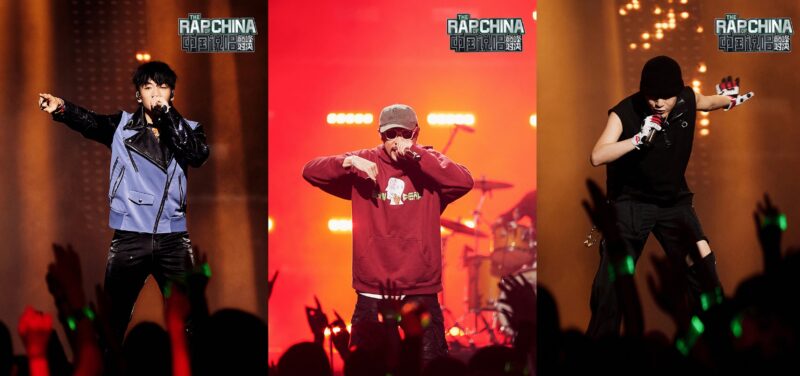Despite intending to keep a low-profile, the comeback of Li Jiaqi, China’s top live streamer, has still come under the spotlight. His Weibo posts remain from 3 June, the day when his live stream dedicated to the Dragon Boat Festival was cut off abruptly and the appearance of a “tank-like” cake in the live session is believed to have resulted in the incident. The shape of the sweet, made into a sensitive object was particularly controversial especially on the eve of 4 June (or June Forth), a day that is associated with the student-led demonstration held in Tiananmen Square in 1989, and gave birth to the iconic ‘Tank Man’ photo.
A quiet return
After three months’ absence, the live streaming star surprised netizens with his quiet re-emergence on 20 September. The two-hour comeback live session is reported to have drawn in over 63 million to tune in on Taobao (one of China’s largest e-commerce platforms), generating a total sale of at least 127 million RMB ($17.69 million).
Li Jiaqi still maintains an outsized influence in the market, among fans and consumers [in China].
“Based on Li Jiaqi’s performance on the first day of his return, he still maintains an outsized influence in the market, among fans and consumers [in China],” said Junyi Lv, Ph.D. at Annenberg School for Communication and Journalism, University of Southern California. Lv also co-authored the article titled China’s livestreaming industry: platforms, politics and precarity for the International Journal of Cultural Studies.
“We have no formal explanation as to why he was away from public view for three months with no official, published ban. Compared with other celebrities who were recently punished officially, Li Jiaqi’s return is probably the least affected,” Lv told Dao Insights. “After all, he did not break the law, unlike other celebrities for instance who did not pay taxes or engaged in prostitution. But he still needs to keep a low profile, or he may be challenged by competitors given how quickly the livestreaming industry changes.”
An evolved landscape
Nevertheless, many changes have occurred in the industry over the past three months. Just a few days after the tank row, on 8 June, China’s State Administration of Radio, Film and Television and Ministry of Culture and Tourism published the Code of Conduct for Online Presenters (including live streamers), which provides instructions to live streamers on what should and can be done, as well as what is forbidden.
The industry has passed its earlier phase of wild, unregulated growth, and is being increasingly integrated into the formal state-regulated market system.
Junyi Lv
There is a reshuffle in live streamers too. Namely, the emergence of Dong Yuhui, a former English teacher at China’s private education service unicorn New Oriental who is now a live streamer for New Oriental’s own video channel Dongfang Zhenxuan (or Oriental Selection). Dong became a new Internet sensation on 10 June following the initiative of bilingual live streaming.
China’s live stream industry is showing a process of de-monopolisation.
The timely rise of Dong also resulted in the channel’s momentum during the subsequent mid-year shopping festival on 18 June, aka “618”, clocking an accumulated live stream viewership of over 300 million and pulling off a daily sale of more than 50 million RMB ($6.97 million) four days in a row.
Regaining momentum under tighter regulations?
Li’s return alone carries mixed implications. Despite becoming a national headline, his reappearance seems to have been toned down as hashtags related to his return such as “Li Jiaqi comes back” and “Li Jiaqi comeback live stream tonight” appear to have been censored on Weibo, with search results saying, “According to the relevant laws, regulations and policies, the page is not found.”
Also, gone is the aroused tone he used to use to urge viewers not to miss out on “the best bargain” exclusive to his live stream audience. Replacing this was a reminder of “rational consumption” in the background, which was also stated in the government’s Code of Conduct for Online Presenters.
“Li’s emphasis on rational consumption is aligned with the policy,” Lv added, “During the pandemic, livestreaming e-commerce (live commerce) was formally endorsed by the government to drive economic development. Live streaming and e-commerce industries have become increasingly integrated. As China is recovering from the pandemic, especially after discovering certain top live streamers had evaded taxes, regulation for the live-commerce industry will be tighter.”
Li’s comeback in the run-up to Double 11 shows a positive sign for the live commerce industry as a whole.
Commenting on whether brands could continue to rely on the dubbed best salesman in the long run, Lv told Dao Insights that brands may want to diversify their channels and China’s live stream industry is showing a process of de-monopolisation (or Qu Toubu Hua in Chinese) which sees top live streamers fade out of the market due to a host of reasons including tax evasion or other violations of laws and anti-monopoly regulations.
Having said that, Lv also views Li’s comeback in the run-up to China’s largest online shopping extravaganza Double 11 as a positive sign for the live commerce industry as a whole. Whether the sought-after personality will boost the performance of this year’s e-commerce fest remains to be seen considering the muted sentiment during last year’s Double 11 amid the tech crackdowns.
Such uncertainty has been furthered in light of China’s twice-a-decade Party congress that is set to begin 16 October and typically lasts about a week, which is likely to overlap with the presale season that normally kicks off three weeks ahead of the grand finale of the annual shopping festival on 11 November.









